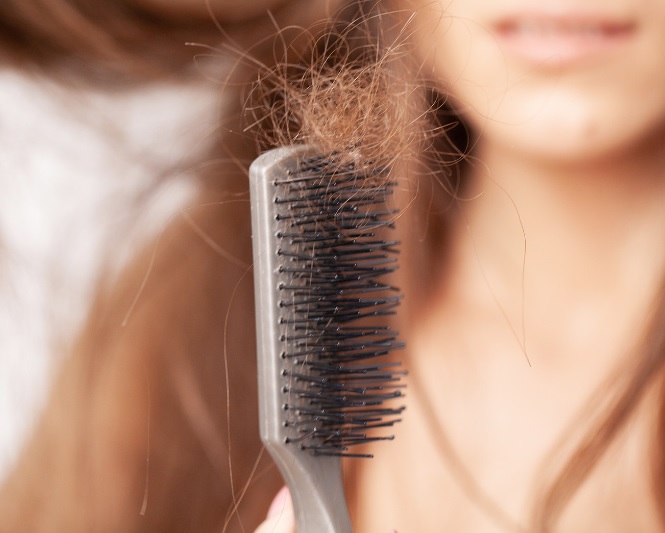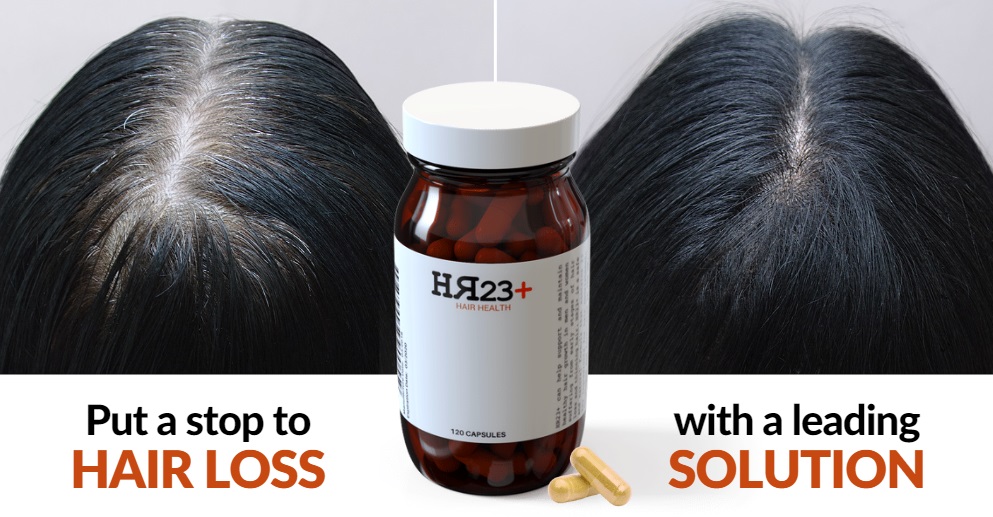
Here are some common causes of hair thinning in women who are in their 40s and beyond…
Hair thinning in females can be caused by a variety of factors. It’s essential to remember that hair loss is a complex issue and may have multiple contributing factors. While I can’t diagnose your specific condition, here are some common reasons why hair thinning may occur in women in their 40s:
Hormonal changes
As women age, they undergo various hormonal changes, particularly during perimenopause and menopause. Fluctuations in estrogen and progesterone levels can lead to hair thinning or shedding.
Genetics
Female pattern hair loss, also known as androgenetic alopecia, can be hereditary. If other women in your family experience hair thinning, there’s a higher likelihood that you may also be prone to it.
Stress
Chronic stress can disrupt the hair growth cycle and lead to increased hair shedding. Significant life events, work-related stress, or emotional distress can contribute to this.
Nutritional deficiencies
A diet lacking essential nutrients, such as iron, zinc, biotin, and vitamins A, C, and D, can impact hair health and contribute to thinning.
Thyroid issues
Hypothyroidism (underactive thyroid) or hyperthyroidism (overactive thyroid) can disrupt the body’s hormone balance and lead to hair loss.
Medical conditions
Certain medical conditions, like polycystic ovary syndrome (PCOS), can cause hair thinning due to hormonal imbalances.
Medications
Some medications, such as certain antidepressants, blood thinners, and antifungal drugs, may have hair loss as a side effect.
Hairstyles and treatments
Frequent use of hairstyles that pull the hair tightly (like tight ponytails, braids, or extensions) and harsh hair treatments (like chemical relaxers or excessive heat styling) can cause hair breakage and thinning over time.
Autoimmune conditions
Conditions like alopecia areata involve the immune system attacking hair follicles, leading to hair loss.
Menopause
As women reach menopause, the decline in estrogen levels can contribute to hair thinning.
Age-related changes
As we age, the rate of hair growth may slow down, and hair may become finer.
If you are concerned about hair thinning, it’s best to consult with a healthcare professional or a dermatologist. They can perform a thorough evaluation, review your medical history, and conduct any necessary tests to determine the underlying cause of your hair thinning and recommend appropriate treatments or lifestyle changes.
If you are looking for safe and natural ways to tackle hair loss, without all the nasty side-effects, then consider trying HR23+ hair restoration supplement. This winning multi-macro extract supplement helps tackle thinning hair at the root cause.
91% of female users saw visible improvements in their hair within 6-12 weeks. Try HR23+, risk free.


Leave a Reply